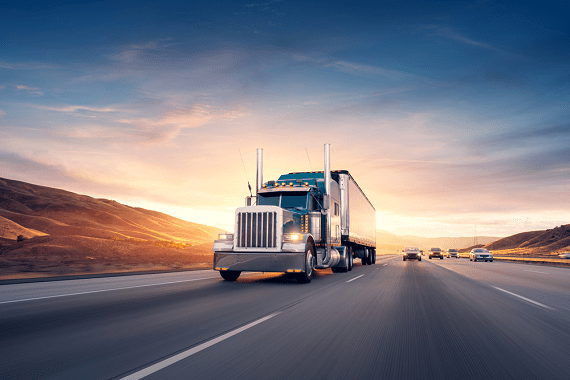Dubai, a global economic and trading hub, plays a significant role in chemical logistics due to its strategic location and thriving industrial landscape. The transportation, storage, and distribution of chemicals demand meticulous planning, adherence to regulations, and a deep commitment to safety and environmental stewardship. In this guide, we delve into the intricacies of chemical logistics in Dubai, emphasizing 12 key considerations that ensure the smooth and secure handling of chemical substances.

Guide to Execute Safe Chemical Logistics in Dubai, UAE
The following tips are aimed to help you safely execute chemical logistics in Dubai.
1. Regulatory Compliance: Understanding Dubai’s Regulations
Dubai enforces stringent regulations governing chemical logistics to ensure public safety and environmental protection. It is essential to be well-versed in local laws and international agreements, such as the Rotterdam Convention, that dictate how chemicals are transported, stored, and handled. Complying with permits, licenses, labeling requirements, and safety protocols is paramount for seamless operations. Generally, top logistics companies in Dubai are aware of all the regulations.
2. Proper Packaging and Labeling: Protecting Cargo and Personnel
Chemicals must be packaged meticulously to prevent leaks, spills, and contamination. Adhering to international packaging standards minimizes risks during transportation and storage. Equally important is clear and accurate labeling, providing vital information such as hazard warnings, chemical composition, and emergency contact details.
3. Transportation and Documentation: Selecting the Right Routes
Choosing appropriate transportation modes and routes is crucial. The compatibility of chemicals with other cargo and the chosen mode of transportation must be considered. Additionally, meticulous documentation, including Material Safety Data Sheets (MSDS), shipping manifests, and customs declarations, is essential to facilitate smooth border crossings and regulatory compliance.
4. Warehouse and Storage: Ensuring Safety and Integrity
Storage facilities for chemicals in Dubai must adhere to strict safety standards. Proper ventilation, temperature control, fire prevention measures, and spill containment systems are essential features. Segregating incompatible chemicals is a crucial practice to avert potential accidents.
5. Handling and Training: Prioritizing Employee Safety
Trained personnel are the backbone of safe chemical logistics. To prevent spills, leaks, and exposure, employees must receive proper training. Regular safety training, emergency drills, and the provision of protective gear are necessary to safeguard their well-being.
6. Emergency Response: Preparedness for Unforeseen Incidents
An effective emergency response plan is non-negotiable. In the event of a chemical spill, fire, or other emergencies, a well-defined plan detailing spill containment procedures, fire control measures, medical aid, and evacuation processes can prevent escalation and minimize damage.
7. Environmental Impact: Sustainable Practices
Chemical logistics should prioritize minimizing environmental impact. Disposal and treatment measures must comply with environmental regulations to prevent contamination and ecological damage. Sustainable practices, such as recycling and waste reduction, contribute to Dubai’s commitment to environmental stewardship.
8. Collaboration: Partnering for Success
Engage experienced logistics providers and customs brokers familiar with Dubai’s chemical logistics landscape. Collaborating with knowledgeable partners helps navigate complex regulations, customs procedures, and safety standards, ensuring a seamless supply chain.
9. Risk Assessment: Identifying and Mitigating Hazards
Conduct thorough risk assessments for every stage of chemical logistics. Identifying potential hazards and implementing robust risk mitigation strategies enhance safety. Proactive measures reduce the likelihood of incidents and ensure a secure operational environment.
10. Communication: Open Lines for Effective Operations
Clear and constant communication among stakeholders is vital. Effective communication prevents delays, addresses issues promptly, and ensures that all parties are informed and aligned throughout the chemical logistics process.
11. Security: Safeguarding Shipments
Chemical shipments require stringent security measures. Utilize tracking technologies, secure packaging, and adhere to customs security protocols to prevent theft, tampering, and unauthorized access.
12. Continual Improvement: Learning from Experience
Regularly assess and review chemical logistics processes. Learning from incidents, adapting strategies, and incorporating lessons into operations result in continuous improvement. Flexibility and adaptability are key to evolving and refining your logistics practices.
Tips to Execute Safe Chemical Logistics in Dubai – Conclusion
Navigating the landscape of chemical logistics in Dubai demands a comprehensive understanding of regulations, safety practices, sustainability, collaboration, and continuous improvement. By meticulously addressing the 12 considerations outlined in this guide, chemical logistics companies can establish a robust and reliable framework that upholds the highest standards of safety, compliance, and environmental responsibility. Embracing these principles not only enhances the reputation of chemical logistics within Dubai’s dynamic business ecosystem but also plays a crucial role in shaping a safer, more sustainable future for the city and its stakeholders. As Dubai continues to grow as a global trade hub, responsible and well-executed chemical logistics will undoubtedly contribute to the city’s lasting success.
Related Links:
https://www.moec.gov.ae/en/-/logistics-en
https://dubaibusiness.news.blog/2022/01/15/tips-to-start-logistics-company-in-dubai-uae/